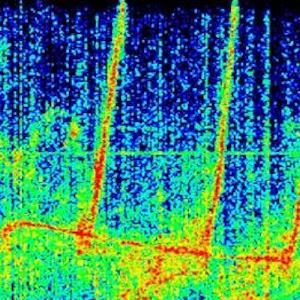This article was originally published on norient.com
The Dirty Way! Demixing Bollywood
Up first is MumBai Mafia. Very little is known about this artist based in the Netherlands, who is infamous for sampling and ripping apart Bollywood soundtracks creating a distinct yet dislocated narrative. However, the sampling of such material is illegal, the artist overrides the hegemony of copyright and IPR in every tune. Bollywood bastardised! Slammed by broken beats, bleeding distorted synths, and jarring non-melodies. The sound is subverted, perverted, and rebellious. Erie, haunted, and loaded with irony and machismo, the sampling leans a lot on dark humour. "Jay Jay Hanuman" (All Hail Monkey God) features a popular 'kirtan' (Hindu religious hymn) running deliberately out-of-sync along crusty beats and a grinding synth-line. Or take the example of "Stevie" – a hilarious conversation on the phone between a girl and boy living in Mumbai. The girl’s conversation with the boy, about love, life, Bollywood stars, and the boy and his mother riding over a looped chunk of Stevie Wonder’s epic hit, "I Just Called to Say I Love You". The sound of MumBai Mafia is but anarchistic to begin with, not willing to rest upon repetition, instead upon reputation.
Dialectics and Sampling
Bagula Bhagat (shady person in Hindi) is an artist based in Kerala and New Delhi, India. His music is an outcome of Dub and Post-Dub - interwoven around critical philosophies and visionary words. Bagula Bhagat is sampling the spoken word of philosophers, politicians, actors and forgotten shamans. The dialectic sound haunted by forgotten places and epochs. As we hear in his 2014 hit "No Mahatma in Gandhi (feat. Dr.B.R Ambedkar)" back then, much talked about in the New Delhi’s underground electronica scene. The tune is based around a scathing speech by political visionary B. R. Ambedkar, who compels the listener to understand why he refuses to address Gandhi as a 'Saint'. The sonic tapestry is rich, reflecting upon a very complex set of inspirations. Asking him to define his sound and vision, he states "I am dilettante tantra-sonic sound alchemist and an agent provocateur. The music is a form of subversion and the samples reflect the anarchic zeitgeist. Just like Ambedkar's rebel spirit, the visceral poetry of Tukaram, Faiz or Ginsberg, cerebral speeches by visionaries, trippy movie dialogues and free spirited aesthetics of dub electronica, i give an alternate narrative.I try to amplify sensations and synesthetically create music that upsets the status quo of music. This way, i create new dynamics between sound and the socio-politico-spiritual reality and hopefully new harmonics between the listener and the world."
Kickstart Rebellion!
Kid Kishore is an artist from Copenhagen, Denmark, who is part Indian part Danish. His early formation shaped inside a first-world-order with liberal inter-racial ethics yet eventually colliding with third-word-chaos and kitsch. As Danish electronic music may be defined as cool, dark or even to an extent safe - yet Kid Kishore's sonic barrage and kooky visual projection is quite the opposite. He is widely cited for his attention wrecking combination of breakcore, dubstep, trap, and crispy vinyls as hyper-fried 'desi rampage'. The Indian landscape is audible from the onset of this clear breakdown of genres. Call it kitsch, call it shocking, or plain unpredictable, the frenzied short fire tunes are but built on the artist's incendiary sampling habits. The ironic part about his sampling practice is that Kishore does not understand the languages (Hindi and Punjabi) that he so heavily samples. "There is a lot of radical youth and rise of hooliganism in Denmark, I try to utilise that energy in a positive way in the music I make" states Kid Kishore on Danish TV.
Sampling Militia!
Ravana (the infamous demon king of The Ramayan) is an artist based in Delhi - a self-professed "dub militant". His music is largely influenced by post 90's waves like trip hop, jungle, drum and bass, dub and leftfield. Sampling is a given inside these militant arenas of electronic music. What drew him to sampling and create the political framework of his music was Muslim Gauze (Bryn Jones) and Dr. Das (ex-bassist of Asian Dub Foundation). As an artist with limited means and resources, Ravana has released more than ten odd albums and dozens of remixes in the last ten years on digital, tape, and vinyl. The militant ethics form webs of interpretation around the artist. He speaks about his connection to sampling: "As I don’t know how to play any real instruments, sampling is a huge dividend for me. For my music production. It opened a whole new world for me… To me, sampling is an art and a necessity as well". Take the example of his tune 'Sabse Kahtarnak' (Most Dangerous) from the album 'Anti-National' - reflecting upon the cycles of civil unrest and state violence in India. The tune stages thick southern percussions rolling over a deep dissonant bassline and a voice warning us about the biggest danger, of loosing one’s identity and rights...



























0 -